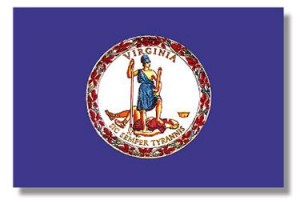
Implied certifications and conditions of payment have their day in Court
Implied Certification, Conditions of Payment, and the federal False Claims Act
On June 16, 2016 the Supreme Court issued its much-anticipated opinion in Universal Health v. Escobar. The opinion — which was unanimous and was authored by Justice Thomas — deals with important principles in the world of the federal False Claims Act like “implied certification” and “conditions of payment” but before going further I want to point out one thing about the importance of Escobar or, in fact, of any SCOTUS opinion.
The importance of Escobar? That is very much to be determined…
One thing I think all Americans learned during the Bush v. Gore case in 2000 is that reading and understanding Supreme Court opinions on the fly is an extreme sport not for the weak of heart. But, if it is difficult to read SCOTUS opinions on the fly, it is impossible to discern right away how significant any one particular SCOTUS opinion will be over the long haul. Sometimes, opinions mark an important change in the legal culture of the United States. As one example I would refer my readers to the Celotex and Liberty Lobby opinions in 1986 that ushered in the modern era of summary judgment in federal courts.
Other times, opinions that seem important when they are issued turn out to be less than important. A good example of this is the Desert Palace case from 2003. In the world of employment law this opinion was interpreted as SCOTUS saying that more employment law plaintiffs would get a jury trial. The reality turned out very differently. When opinions turn out to be less important than they seem it is generally because the lower courts (who do most of the interpreting on a day to day basis) interpreted the opinion differently, and SCOTUS lacked the time or the interest to follow up and reinforce its initial opinion.
But, for what its worth, here is what we know for sure. The Escobar opinion certainly means the following two things: (1) The “implied certification” theory of false claims act liability is valid under some circumstances; and, (2) In order to serve as a predicate to an FCA violation, a contractual, regulatory, or statutory provision does not need to be a “condition of payment.”
The holdings of Escobar — and the things that interested people have said so far
Many folks on the relator’s side (like Senator Grassley (R-IA)) found the opinion to be a great plus for taxpayers. Leading FCA defense lawyers like Jack Boese and Jesse Witten also found some things to like about the Court’s ruling.
So here is my take: I think the opinion is a win for relators and for taxpayers. Some relator-side FCA lawyers didn’t like the fact that SCOTUS didn’t rule that every claim for payment implicitly represents that the billing party is entitled to payment. By the same token, however, the Court clearly ruled that by submitting claims for payment to the Medicaid program for counseling services by individuals working in certain specific roles — when the services were in fact performed by individuals filling those roles but lacking the qualifications normally associated with those jobs — the defendants submitted a false claim to the United States.
With regard to the “condition of payment” ruling, the Court held that in order to rise to the level of an FCA violation, a defendant must violate a law or regulation that would be material to the government’s decision to pay, regardless of whether that condition is labeled by the government as a condition of payment. This of course is good because there are a great many important rules that are not specifically labeled as “conditions of payment.” The Court also said, however, that merely labelling something a “condition of payment” is not enough to make it material under the federal FCA. The Court provided certain indicators of the government’s view of materiality, such as the routine payment of claims despite regulatory noncompliance, or rigorous government enforcement of a particular regulation and payment denials in instances of noncompliance.
Only time will tell how this opinion will play out…and stay tuned readers, because SCOTUS recently granted two new writs in FCA cases.